James Hinchcliffe is one of IndyCar's most recognisable drivers. After retiring from the sport, he has been a successful race commentator for NBC in the US, and recently had the opportunity to also join the F1TV team for selected F1 rounds. Roksana Ćwik spoke to the Canadian about his long racing career, his new role as a reporter, as well as the current situation in IndyCar and Formula 1, ahead of the US Grand Prix in Austin.
How does it feel to be working with F1?It's a great opportunity. Obviously, this is my first year out of the car and transitioning over to the television side. Had a phenomenal year in the IndyCar paddock with NBC, calling all those races. It's been kind of a fun transition. And with the IndyCar season done, an opportunity to come here to the U.S. Grand Prix in Austin and try my hand at a little bit of F1 commentary and very much the new guy and sort of the odd guy out. But it's been a great group to work with so far and having a lot of fun.
A lot of people wrote, even our readers, that you need to be a part of F1 because you are really good at commentating it.I appreciate that. I mean, like I said, it's a cool opportunity. We're going to do three races this year [2022], which is awesome. We'll be also in Mexico City and then also Abu Dhabi. And then who knows for next year? I mean, I'm committed to IndyCar and NBC for my work back in the States. But if there's off weekends that will work out, I'd love to do more of it.
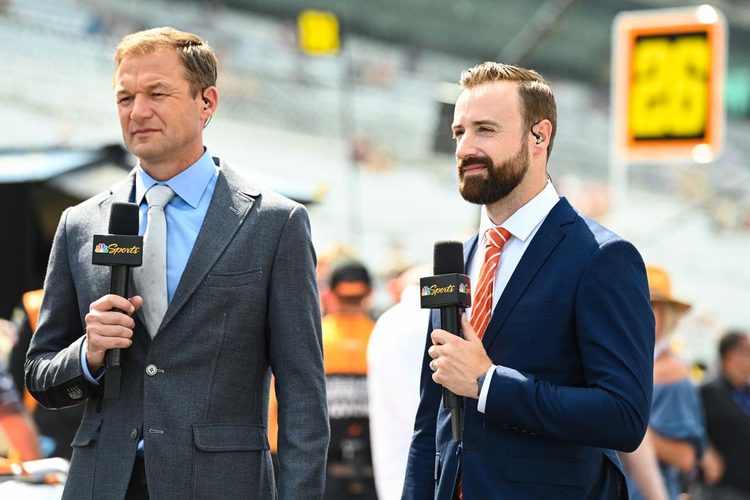
How do you feel to be a retired driver?It's a lot less stress, I'll tell you that. It's a lot more free time, which is nice. There are certainly things that you miss about being in the car, the competition and the battles on track, things like that. But after doing 11 seasons of it, I felt it was a pretty good run and the timing was right, I think, to step away. I certainly don't regret leaving, even though I do miss certain parts of it. But I'm really happy with where I’m at right now.
How does it feel to have a pole position for the Indy500?That for sure is a special memory for me in my career, especially given the circumstances with the accident at Indy the year before and then to come back. And qualify pole for that race and the 100th running of the race, no less. There's a lot of things that made that extra special, for sure.
You've proved that even with an accident like this, you can come back and compete with others. Do you think it's difficult not to think about what happened and get back in the car?It should be, but racing drivers are not right in the head. It was not even a question for me when I woke up in hospital about whether or not I wanted to get back in the car. It was just a question of how quickly my doctor would let me do it. I think athletes are wired a certain way in general, and racing drivers specifically, just because of the inherent danger of the sport. I think you have to be willing to accept that. It was always something I was before the accident and it was something I was willing to still accept after the accident.
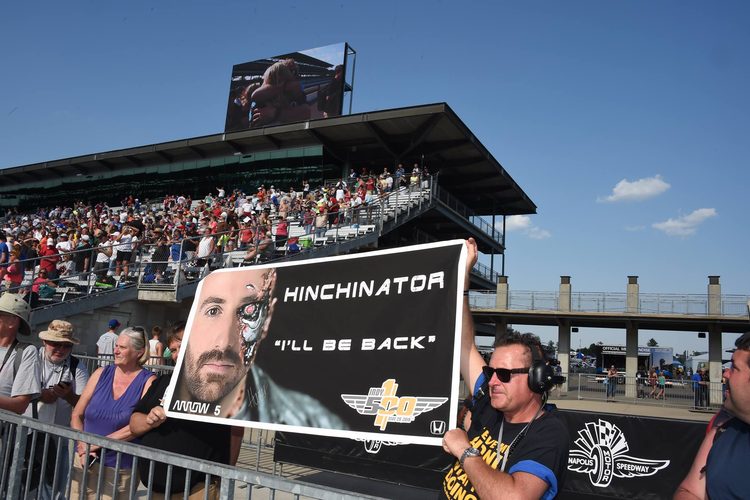
You spent a lot of years in IndyCar. What has changed the most for you and in the sport?That's interesting, that's a good question. I think obviously from my first race the car changed quite a bit. I was still with the IR-03, my rookie season, then went to the first iteration, the DW12, then the manufacturer kit era, then the IR18, and now addition of the aero screen. There's been a lot of evolution of the car. I'd be lying if I said it was all positive from a performance and driver enjoyment standpoint. Everything we've done has been for safety, so I'm not ever going to say it wasn't a good move. But it doesn't drive quite like it used to and I think I enjoyed it a little more earlier. For me personally, I think it was just getting comfortable with being there. I think a lot of times when drivers graduate up to the IndyCar Series there's sometimes that feeling of imposter syndrome. This is what I watched growing up, these are all my heroes that I'm now racing with, I don't belong here. And you get to that point where you get through some races, you prove yourself, you have some good battles with established drivers. You win, and then you realize «no, no, I deserve to be here». And that makes your weekends and your mindset a whole lot easier, I think, after that point.
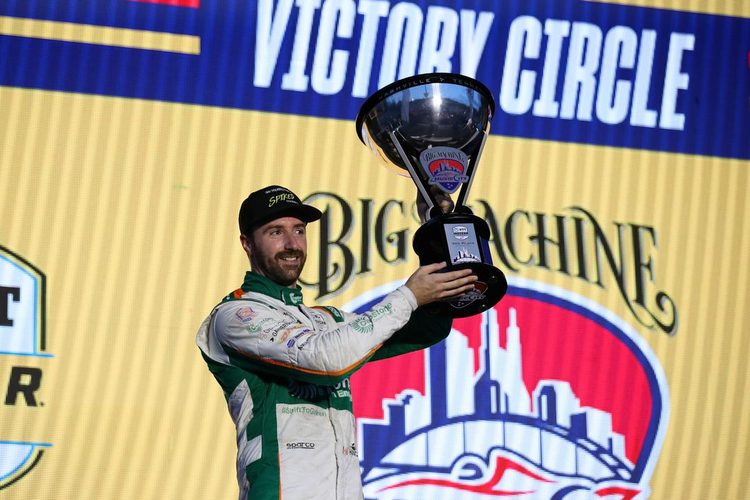
You've been in the sport for a very long time; you've met a lot of drivers. Do you think F1 should be just that? To change drivers, not just every five years, six years, but for those changes to happen at least every two years?No, I think the best drivers should be in the car. I think the best 20 drivers available should be the ones in the seats. I don't think there has to be a predetermined turnover or anything like that. But it is tricky because sometimes there are more than 20 really deserving people. And obviously it doesn't just come down to ability and talent – it's opportunity, it's what are the contract cycles like, what manufacturer maybe are you aligned with; do you have some sort of outside funding that maybe helps your cause. Racing is a bit of a tricky sport in that sense, but no, I think in IndyCar you've got drivers like Scott Dixon who have been around 20+ years, Helio Castoneves, Tony Kanaan… and they're still great. They're massive assets for the series and they're incredible drivers, but then you have the young drivers coming in: Colton [Herta], Pato [O’Ward], David Malukas, Kyle Kirkwood, so I think it's nice to have that mix.
Which race was the most challenging for you and why?I think the Indy 500 is always going to be one of the most challenging because it's such a long race, the track changes so much, the car changes so much, the conditions change, and as a driver I'm trying to stay on top of that at those speeds with no margin for error. It's such a draining mental challenge and I think that was always one of the toughest ones.
You mentioned that it's a very long race, which part of that race is the most difficult?I think the middle 100 laps. You've got the first 50 laps which are maybe a little bit frantic, you're trying to make up positions on the start, you get to that first pit stop sequence, you're starting to feel what kind of a balance of car you have, what kind of adjustments are working in the pit stop. Then for about 100 laps you need to just survive. You slowly make the car better if you can, but it really is about not making mistakes, it's about not losing too much track position, not forcing issues unnecessarily, and putting yourself in a bad spot to be the victim of somebody else's mistake. So that 100 laps in the middle are kind of challenging to keep focused but not get yourself into trouble, and then that last 50 laps it's like a sprint again, it's just like a normal race.
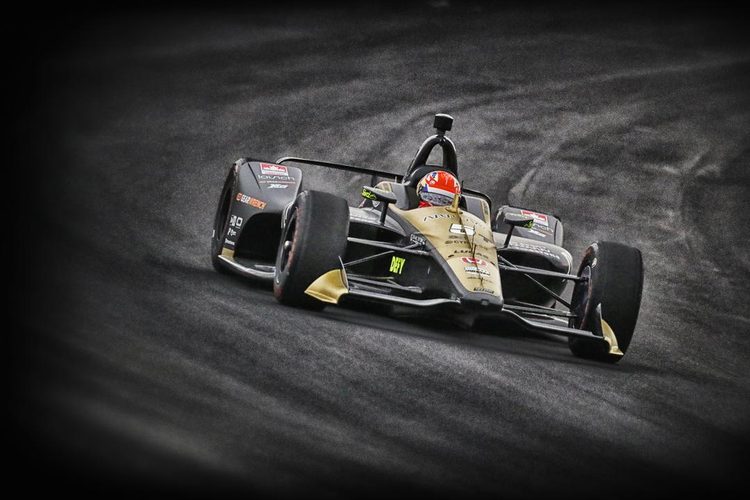
IndyCar is safer than F1, that's what they say, but when you see accidents like Robert Wickens, do you have any thoughts that it could be safer?I think there's always room to improve. IndyCar no doubt has made incredible strides over the last 20-25 years in driver safety. That's through driver equipment, that's through the cars, that's through the tracks themselves, and I don't think that evolution ever stops. We're never going to make racing 100% safe, we know that. Certainly, Robert’s accident was a huge shock to everybody. It did certainly highlight some things that I think we can do better as a series, and hopefully we learn from it and put some of those things into practice. Some of it could be car related, some of it could be track related, but there's always room to improve when it comes to safety.
I don't know if you agree with me, but after the Japanese Grand Prix, do you think the drivers should push more for safety with the FIA and argue with them? Because for me it was ridiculous to see them pushing for the race to be completed.I think the drivers did a good job in Japan of getting their opinions out there. Certainly, once the race was red flagged, the issue with the vehicle on track is kind of a separate thing, but that was something the drivers were obviously very vocal about. Everybody remembers what happened in 2014, I think the series always has to listen to the drivers, because ultimately, they're the ones on track, they're the ones whose lives are at risk, and they're going to be the ones that take safety the most seriously. At the same time, they also really want to race, they're not going to take it to a level where it just sort of neuters the sport from what it is, and takes the thrill and excitement out. I think the drivers in the series have to work very closely together with the FIA, and make sure that, again, we're always improving, and making these things safer and safer.
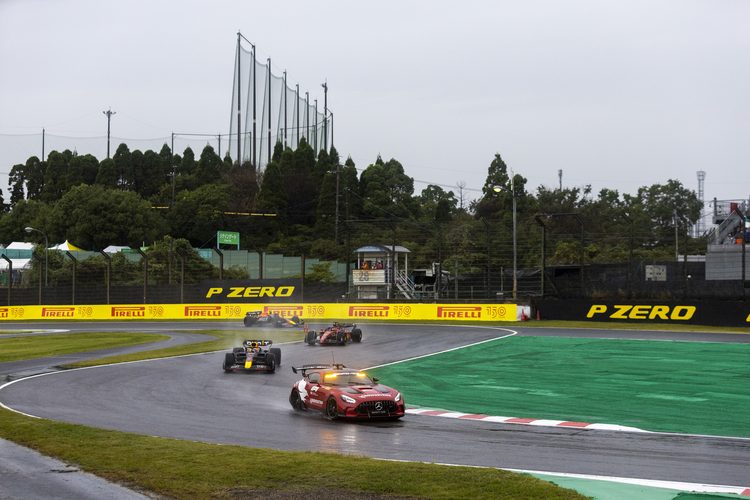
But IndyCar waits for the weather, waits for conditions to improve so that drivers can race safely. Here in Formula One, it's different....Well, I feel like I've seen it both ways here this year. You go to Singapore, and the track dried so much that they didn't even need wet tires, everybody started on inters. So maybe there was some pressure from the FIA, because some of the drivers after Singapore were saying things like, well, why do we even have wet tires if we're not going to run when it's fully wet? So maybe in Japan the FIA was like, all right, you want to use wet tires? Go for it. And it was too much.
Who is the most difficult driver to race in IndyCar?That's such a tough question. They're all so talented. There's no one that's easy to pass in IndyCar. But I think you certainly look at some of the more experienced drivers that just have years and years and years of race craft under their belt – guys like Dixon and Power. But then guys like Colton and Pato and some of the younger guys… Look at Alexander Rossi: he's a very fierce racer, wheel to wheel. There's just a lot of drivers in the series. Well, you're in that series because you're a good and competitive driver, but, yeah, I don't think there's a good answer to that one because it depends on the track and the day and everything else.
What do you think of the situation with Colton Herta with his super licence points? I've seen a lot of comments from Rossi, from Conor Daly and all the drivers.... Do you find it ridiculous that the FIA doesn't allow someone like Colton to be here?Personally, yes, I do. And I think the majority of people would agree with that, that it is silly that he wasn't granted the super license points. I understand the FIA's position that this is the way the rule is written, we must enforce the rule, but I think it's pretty unanimous that people agree that the rule is written for them. it wouldn't surprise me if in the future that rule gets adjusted. I think ultimately people will agree that the rule will be rewritten in the future to stop situations like that, but it's really unfortunate for a guy like Colton that these opportunities to come all of a sudden and have a Formula 1 seat don't come around every day, and that his best opportunity to do that, at least in the short term, was ruined by a silly rule that was sort of arbitrarily written.
We have Indy Lights as the road to IndyCar. We have F3, F2, but some drivers stay in F2 and only a few are able to move up higher. Don't you think F2 and F1 should be like Indy Lights for IndyCar? Since they work in the same way, should they give the opportunity to be higher?I think what happens in North America with the Road to Indy and that every champion in the ladder getting the scholarship money to move up to the next level is incredibly unique in motorsports. It's an awesome system. It is so great for the drivers, and I wish it was around when I was younger. But the challenge in F1 is there are a finite number of seats. There are 20 seats, period. IndyCar doesn't have that limitation, if a driver does win the Indy Lights championship and there isn't necessarily a full-time seat available for them, there's still going to be an opportunity to run a partial season with someone. You can add a car to a team for three, four, five races, the 500, whatever it is. I think the way F1 is structured doesn't really lend itself to be able to do it the same way with F2, but, yeah, ultimately it would be great if you win the F2 championship you're guaranteed a seat. But that's not how it works.
Which track in IndyCar is your most favourite and why?Road America, I think is my favourite. It's such a great old school permanent road course. You couldn't build that one today. They wouldn't let you build it today the way it would feel because it's not necessarily the safest track in the world, but it's a lot of fun to drive in an IndyCar.
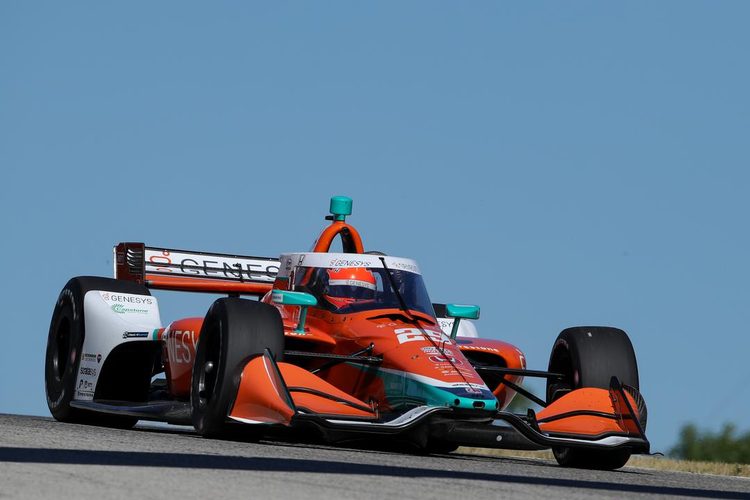
Don't you think F1 should be like IndyCar? That it should have street circuits or ones with more gravel, grass and not just lots of huge run-off sections?Well, I love that IndyCar has that versatility in its tracks and I think that's part of what makes it so unique and challenging. I'm fine if F1 doesn't do that. I think it's funny, their street circuits are very different than our street circuits. There's a lot more run-off in there. The quality of the surface is much better on Monaco, Baku, Singapore than Toronto, Long Beach, St. Pete. But I think that's what makes the IndyCar sort of charming. I kind of like that we run on a great variety of tracks and that they are genuinely a big challenge.
If you received a call from someone like Michael Andretti, or someone from F1 or IndyCar, would you return to racing?If the situation was right, maybe, yeah. It would have to be a very specific situation though.
Thank you so much for your time.Thank you very much.




